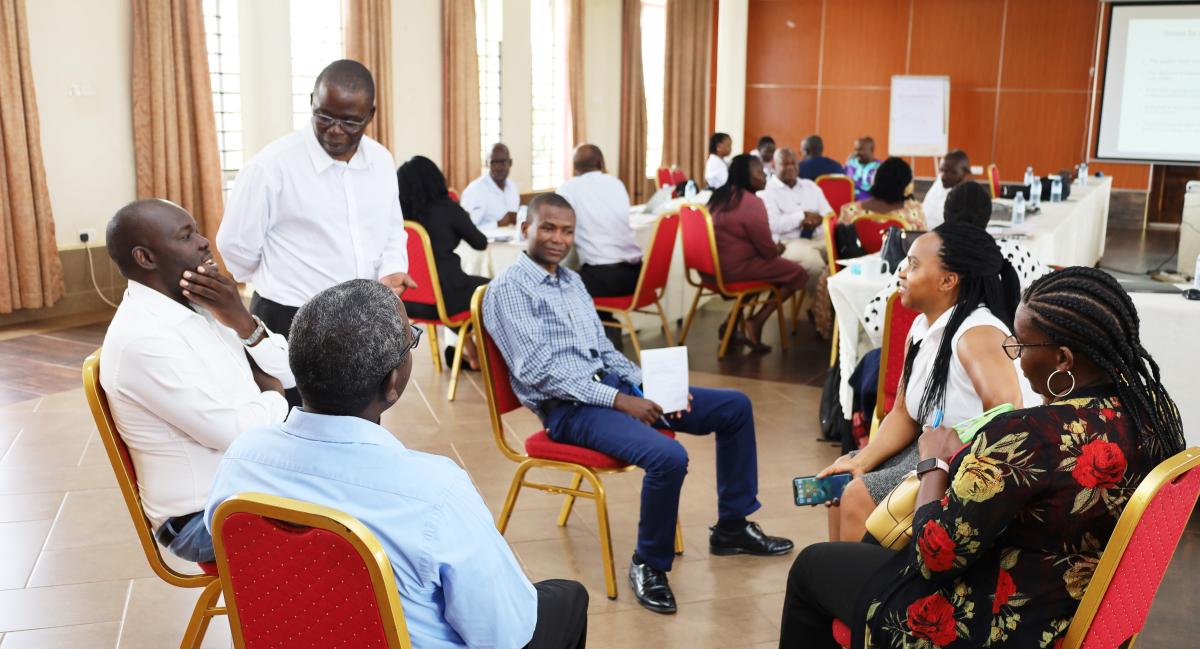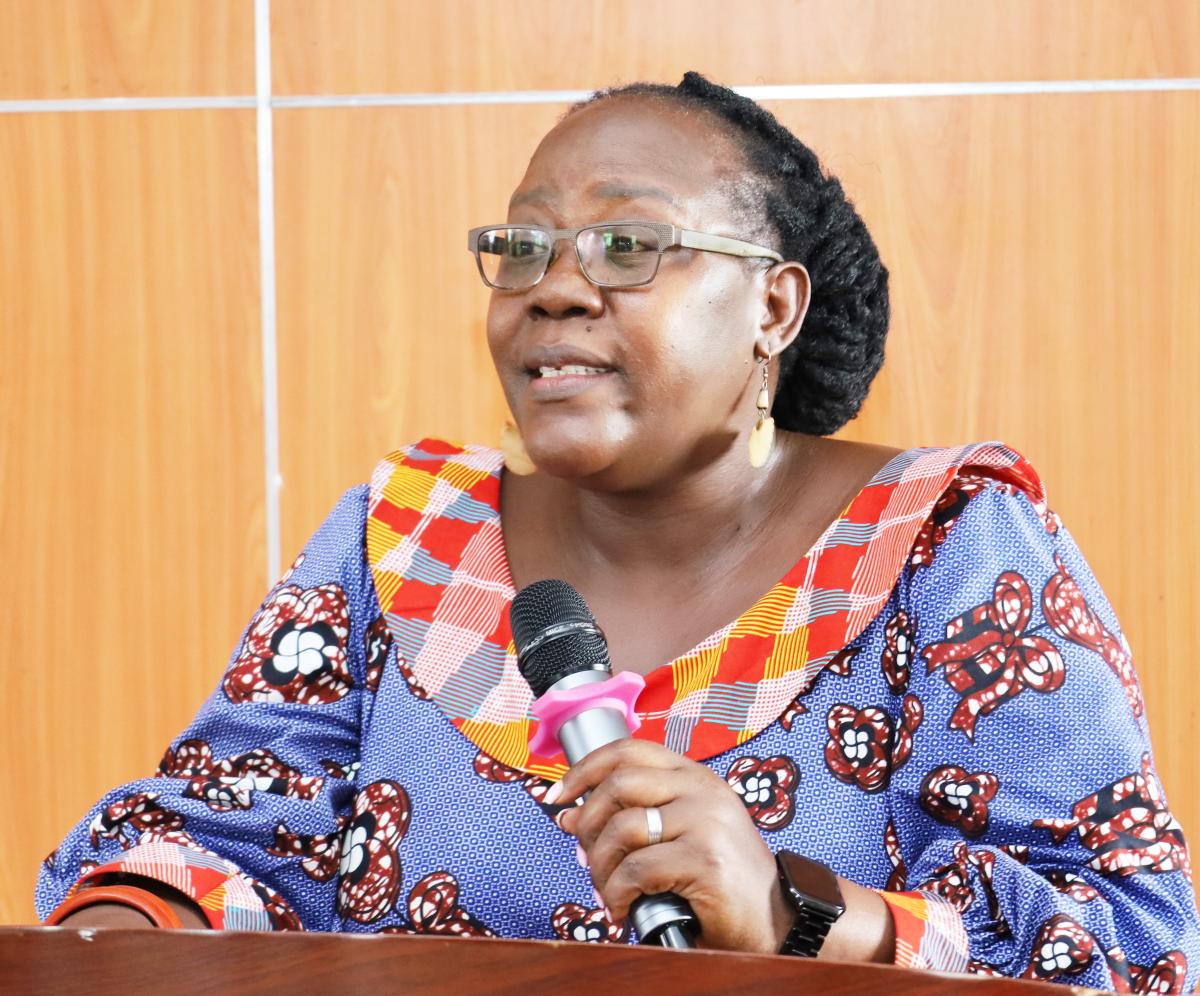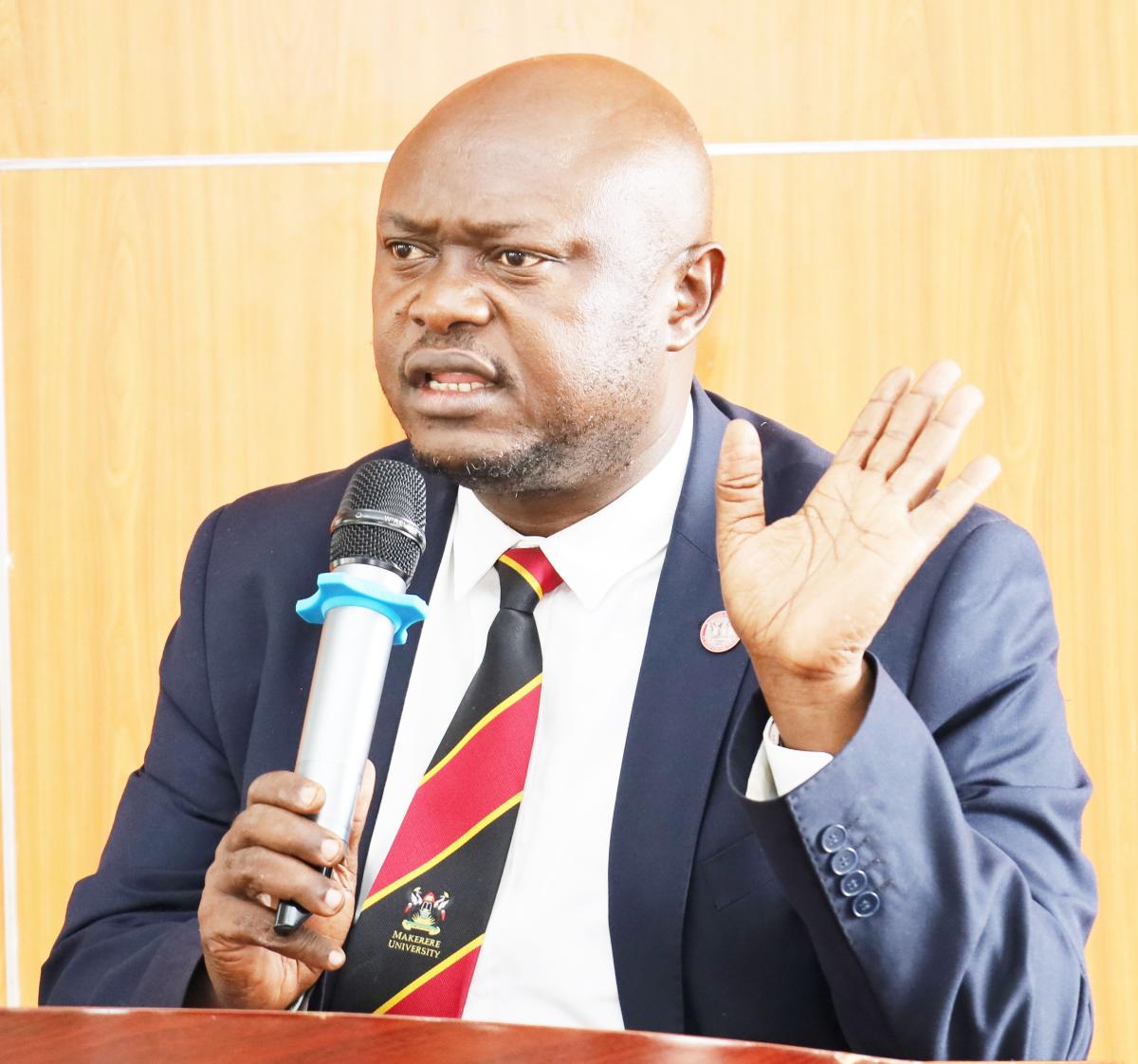
Over 40 Assistant Lecturers from the College of Humanities and Social Sciences (CHUSS) have undergone a three day (18th-20th April, 2023) training on Graduate supervision at at Esella Country Hotel. These Assistant Lecturers attained their PhDs in the recent past and are still waiting for promotion.
The workshop was facilitated by members from the Directorate of Graduate Research and Training and the College of Education and External Studies. They included Assoc. Prof. Julius Kikooma, Dr. Peter Ssenkusu, Dr. Dorothy Ssebowa, Prof.Betty Ezati and Dr. David Onen

Aspects covered on day one included, the General rules for graduate studies at Makerere University and the Research Ethics and guidelines for information and use by supervisors of graduate students; Graduate supervision and knowledge production, a pedagogy and the Trainees Expectations; Graduate student’s experiences of graduate supervision at Makerere or in other University and; the roles of Heads of departments, Deans and Principals in the management of Graduate Training and Supervision at Makerere University.
On day two, participants were taken through the Theory and Philosophy of graduate mentorship and Supervision with reflections on supervision styles; the roles of a graduate supervisor in the management of the supervision process and; Fitting supervisors experiences within the DGRT Rubric and Timelines and Graduate supervisors experiences at Makerere University.
On day three, participants were skilled on Academic writing and giving feedback on student’s texts; Supervisory meetings and conversation skills in practice, Changing from a supervisor to an examiner and panelist at Viva voce.
While officially closing the workshop, the Principal CHUSS Associate Prof. Josephine Ahikire expressed happiness that the people she read names as PhD Graduands, were now part of the faculty and taking part in the discussion on how to handle graduate students.

“I was pleasantly surprised that you responded positively and that we are all trying to score in the same gosal in terms of improving our graduate training because that is the overall As a CHUSS, that is where our niche is going to be. When you come to graduate training, CHUSS has an edge in terms of the disciplines that we offer and that is what strengthen our position to live the university research agenda”, She said.
Prof. Ahikire implored staff to strengthen the position of graduate training noting that the college has the programmes and the capacity required to deliver including human capacity. She observed that most of the trainees were still energetic and that, the more they learn from one another, the better.
Ahikire also advised the participants to love what they do or else they get tired, stressed, shocked leading to disruption of their plans.
“But once you have the passion, supervision becomes a joy. Once you supervise a student and that student graduates, it becomes a passion and also rightly so we need to improve our environment”. She added. .
Noting that there are peculiar problems with space in the university that cannot be solved in the short term, Prof. Ahikire pledged to continue innovating and creating space for graduate training within the college means.
“We have a robust system and graduate coordinating unit that will be able to track each student in terms of where they are and in case of an early warning system for both staff and students.
As new energized supervisors, the Principal urged staff to read the graduate handbook and policies accessible online.
Graduate training in CHUSS
Speaking on the Future of Graduate training in CHUSS, the Deputy Principal Assoc. Prof. Eric Awich Ochen took the participants into group discussion on what should be done to enhance a robust graduate training environment in CHUSS in terms of the kind of environment , structure and infrastructure.

In his presentation Prof. Awich highlighted the number of graduate programmes in the college stressing that the university will be gradually reducing the number of undergraduate programs and enrollment and gradually increasing the graduate intake figures and programmes.
Awich expressed happiness that many departments were developing new programmes.
Graduate training, he said, is anchored in the University Strategic 2021-2020 aiming to transform Makerere into a research-led university which works with industry, community and international partners. And to make it a centre of excellence committed to knowledge transfer partnerships and networks
“Graduate training also falls within the DGRT plan whose aim is promoting high quality research-led education coordinating and working with colleges with faculty at university level research led themes and strengthening inter-disciplinarities to respond to the market demand”.
He reported that the leadership at the DGRT was trying to position itself to support the college to be more effective in delivering graduate training outputs.
He called for the need to promote and embrace multi-disciplinarity research and supervision and not working in specific disciplines.
Among the initiatives undertaken to improve graduate training, the Deputy Principal highlighted the establishment of the Graduate coordination unit within the college and development of several partnerships to position the college and show its relevance, increase enrolment and impact on the community.
In addition to establishing nine centers of excellence to support the training function, the college has also signed over 25 MoUs with different institutions and universities to increase the number of graduate students. Through the centers a number of trainings have been organized to build the capacity of staff and students.
Presenting the graduate graduation statistics for the last 10 years, Prof. Awich noted that, the college was on the right course as the number of graduating students increased annually.
“ For us to move forward, our aim is to double our figures for masters and graduate 500 students in the next five years and for PhD is that if every department can give us three graduands per years then we shall have 45 in the next five years”, The Deputy principal stressed.
He believed that this is possible with improved human capacity. At PhD level.
Looking into the future, Dr. Awich pledge to work with the DGRT and to develop training programmes to promote first level and refresher training for staff to achieve better.
The importance of Graduate Supervision
Presenting on Metamorphosing from a supervisor to an examiner and panelist at Viva voce, Dr. David Onen underscored the role of effective graduate supervision as it benefits the student, the supervisor, the student and the institution.

“Effective supervision builds the students cognitive ability, motivates students to work harder builds productive working relationship between the supervisor and student and help the student complete on time”.
For the supervisor, it is a means of continuous professional development, supports professional practice, builds friendship with students who can help you in future, helps to build the image of supervisors and contributes to the image of the institution. Students do not fail course work but problems emerge with research” Dr. Onen emphasized.
He explained that the goal of the university is to produce as many graduands as possible adding that the way students are supervised leaves a lot to be desired.
“Good supervision enables the university to achieve its targets. Therefore students should be given a good supportive environment. Good supervision entails planning with teaching, guiding direction, mentorship, support, communicating, encouragement counselling etc”. Dr. Onen explained urging participants to enhance their capacities through training and being humble on grounds that they may not know much.
He said, to be able to do supervision, one needs to be well grounded in the subject area, fairly grounded in research methodology and must be caring about time and wellbeing of a student. Supervisors were advised to create a conducive environment for teaching and learning, be available, communicate effectively, provide effective feedback and offer support of different forms
In order to become a good supervisor, Dr. Onen advised participants to develop the passion for teaching, create interest and urge to become good supervisors, attend trainings, broaden their knowledge base and build a character which is dependable.
The trainees were also urged to be role models to students, create time for supervisory work, know their students, provide timely feedback, be humble and refer to others certain issues.
Challenges supervisors face
Supervisors, according to Dr. Onen face a number of challenges in the course of executing their duties. These range from weak, uncommitted uncooperative students, heavy workload, lack of supervision skills, inadequate knowledge of research methodologies and absence of incentives.
Other challenges include, inadequate academic and library materials, limited cooperation among colleagues and lack of counselling and conflict management skills.
